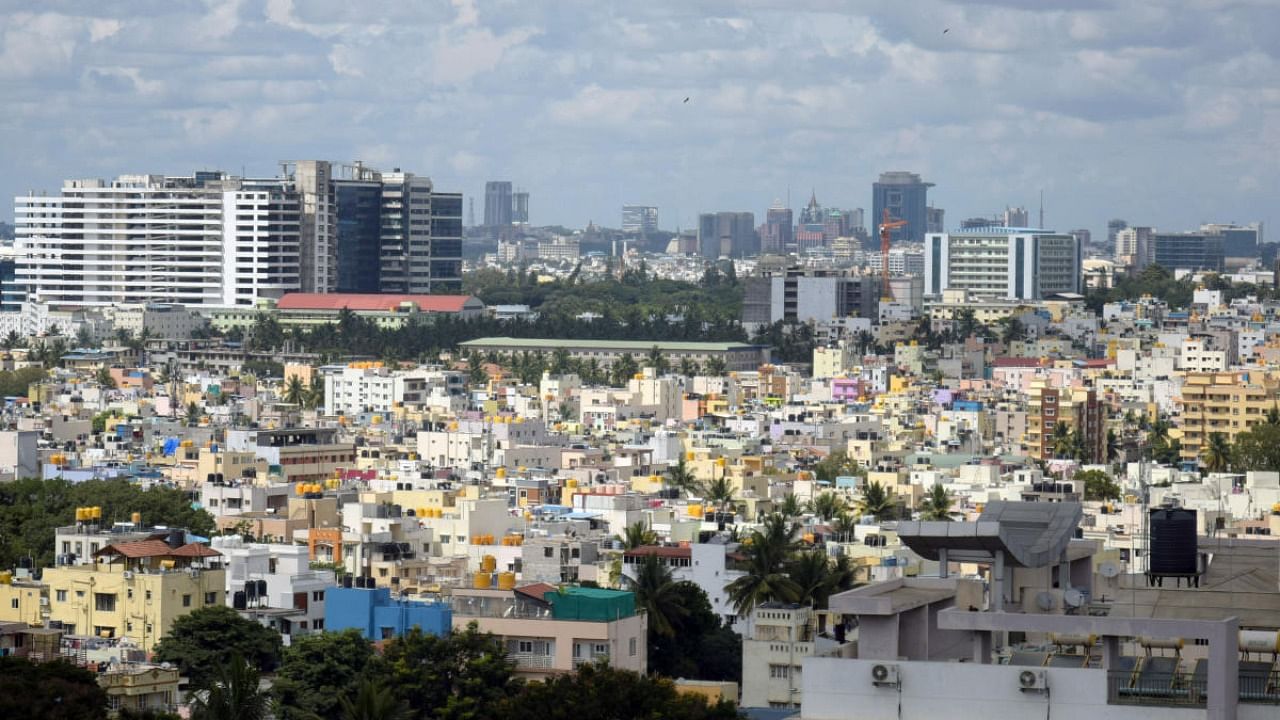
One and a half years after the state government quietly withdrew the Revised Master Plan 2031, the Bangalore Development Authority (BDA) has kick-started the process of drafting a fresh master plan for the city by revising the horizon period to 2041.
This time, the vision document — focused on planning and regulating developmental activity especially on the outskirts of Bengaluru — is expected to steer growth on the principle of creating a 'compact city'. The voluminous work could easily take about two years to complete.
On Monday, the BDA floated tenders for the selection of consultants to prepare the RMP 2041 for the Bengaluru Local Planning Area spread over 1,314 sq km. Currently, the authority follows the RMP 2015, and there are concerns over unchecked and uncontrolled development activities in the city’s peripheral areas.
As per the BDA’s tender document, the new RMP is expected to run into seven volumes. While the initial chapters will analyse the existing master plan, the later volumes will have a bouquet of surveys: on ecology, hydrology, land capacity analysis, heritage and culture. The consultant is also expected to provide a city-wide stakeholder consultation report. Another major component will be land-use forecasting.
The 2015 RMP had set aside 27.75% of the city's total area for residential purposes and about 4.59% for mixed uses. Between 3% and 5% of the city was earmarked for commercial and industrial development. These figures are likely to change in the new master plan as it focuses on densifying areas that are closer to public transport systems, mainly the metro.
Poor implementation
While the previous master plans did showcase a grand strategy for the city, there were lacunae in their implementation. The now-junked draft RMP 2031 stated that only 14% of the RMP 2015 was implemented on the ground, indicating the extent of blatant land-use violations and lack of seriousness in implementing the previous master plan.
Urban planner Radha Chanchani, who works at the World Resources Institute India, said there was no point preparing master plans if authorities did not meet the target they themselves set. "The target could be either the coverage of water supply or the modal share of public transport usage for the city. While it is important for a city to have an integrated and guiding framework, what is also needed is its effective implementation," she stressed.
Vijayan Menon of the collective Citizens Action Forum said the Bengaluru Metropolitan Planning Committee was the right body to prepare a master plan for the city. "How can one parastatal agency (BDA) prepare a master plan for all other agencies such as Bescom, BBMP or BWSSB? We have already mucked up three master plans. Why are we repeating this? Instead of drafting a fresh one, the BDA should first find out why its previous plans failed," he said and added the BDA’s master plan was a real estate-driven document.
Dr Anjali K Mohan, a practising urban and regional planner, said neither the BDA nor the state government had clearly stated the reasons for withdrawing the RMP 2031, which was almost ready. "A lot of time and money was invested in preparing the RMP 2031 but it was withdrawn silently," she said.
Watch latest videos by DH here: